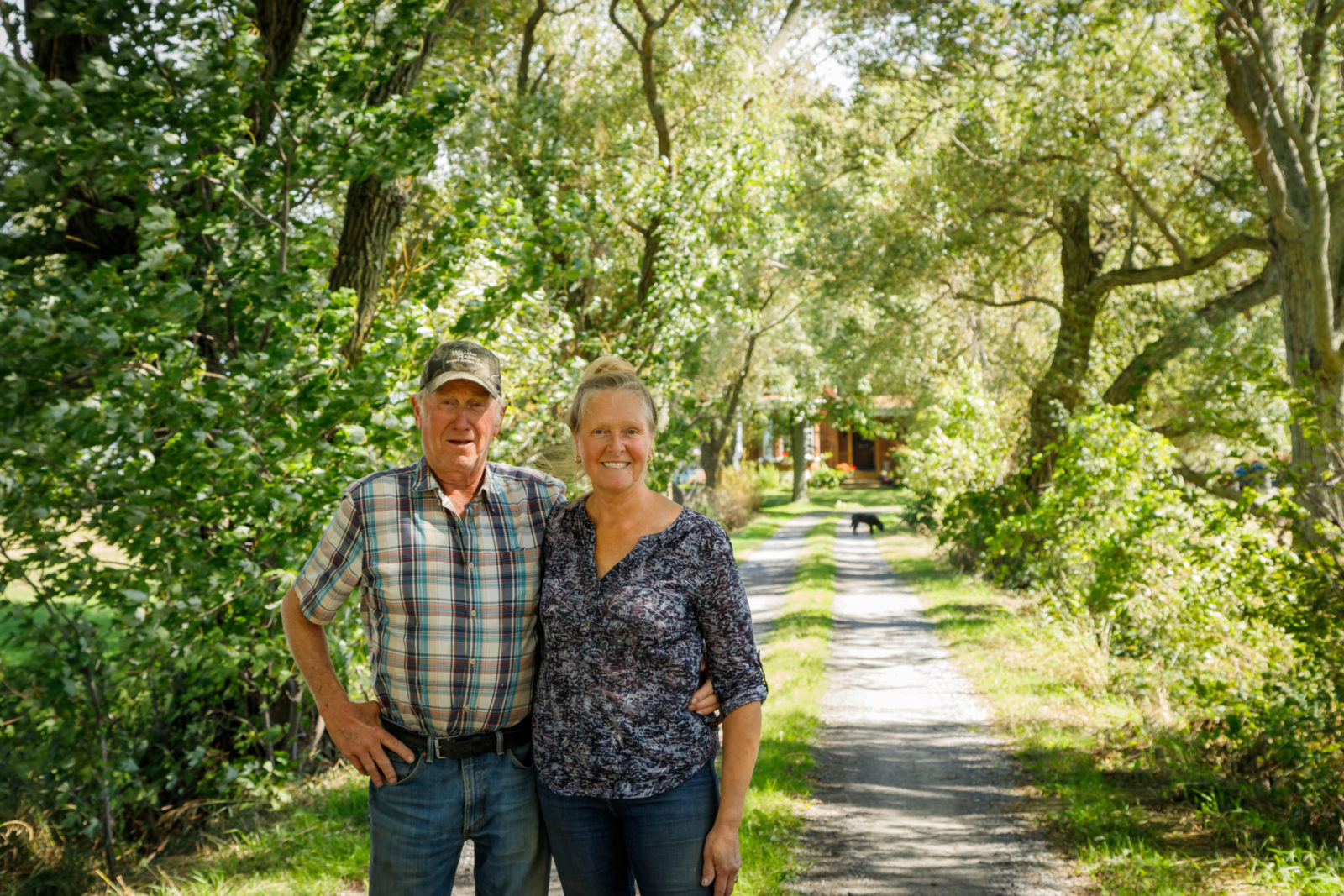
A transition for farm and farmer
de Ruiter Black Angus Beef
facebook.com/deRuiterBeef
Growing up, Trudy wasn’t sure if farming was really her life’s path. Her family had immigrated from Holland after World War II and settled in Joyceville, part of Kington and Frontenac County’s rural farmland.
“When I was a teenager,” she says. “I didn’t want anything to do with it!”
However, love often gets in the way of best-laid plans, and by 19, Trudy had met Case de Ruiter — whose family had also immigrated from Holland to the Frontenac region after WWII — and the rest, as they say, is history.
Together, Trudy and Case moved into a spacious century farmhouse built in 1883 on Wolfe Island and for more than 30 years, they continued Case’s family dairy farm. But dairy farming can be hard on the body, and the infrastructure is expensive. So, a few years ago, they decided to transition the farm from dairy to beef.
Today, de Ruiter farms is officially named de Ruiter Black Angus Beef and they raise, all together, 120 head of grass-fed Black Angus cattle on their farm’s 360 acres — most of which is hayfields and pasture. Trudy has been happy with the change, and with the sight of their cows out of the barn and in the pasture.
“You go with the times,” says Trudy. “Dairy farming was really good for a long time, but I want [the cows] in the sun, on the grass.”
“Dairy farming was really good for a long time, but I want [the cows] in the sun, on the grass.”
Trudy de Ruiter, de Ruiter Black Angus Beef
In dairy farming, calves are typically separated from their mothers. “Now with beef cattle, the calves stay with the moms, they’re out of the barn and in the pasture,” says Trudy. “It’s really heart-warming.”
A new, open environment doesn’t just benefit the de Ruiter cows, there are also tremendous nutritional benefits for those who consume grass-fed beef. It’s leaner, but higher in nutrients like essential omega fatty acids. One of Trudy’s many jobs on the farm is educational outreach, teaching consumers and visitors to the farm about their nutritional value.
Currently, Trudy is retrofitting their 1880s granary building to turn it into an on-farm store. The building’s timbers are still straight and true even after more than a century of use. Here, visitors to the farm will be able to order cuts of grass-fed beef directly and talk to Trudy about the cows’ quality of life as they roam freely around the farm.
Trudy and Case are planning to retire someday, but for now, the size of their operation is manageable. “There’s a better quality of life at a smaller scale.”





















